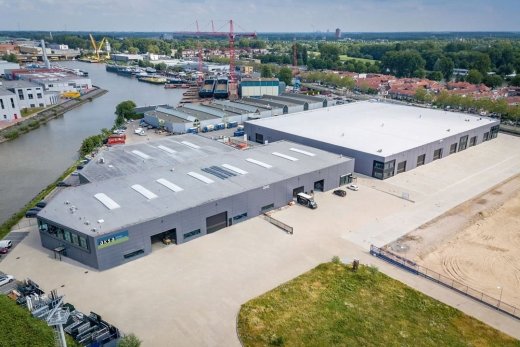Generators are essential for providing backup power in homes, businesses, and industrial applications. Choosing the right type of generator depends on various factors such as fuel availability, efficiency, environmental impact, and cost. In this article, we’ll explore the key differences between diesel, gas, and hybrid generators to help you determine which one best suits your needs.
Diesel Generators: How They Work, Advantages, Disadvantages, and Best Applications
How Diesel Generators Work
Diesel generators use diesel fuel to power an internal combustion engine, which drives an alternator to generate electricity. Unlike gasoline engines, diesel engines operate using compression ignition, where air is compressed to a high temperature, and fuel is injected into the combustion chamber, igniting due to heat. This makes diesel engines more fuel-efficient and durable compared to gas-powered alternatives.
Advantages of Diesel Generators
- Fuel Efficiency: Diesel engines consume less fuel compared to gasoline engines for the same power output.
- Durability and Longevity: Diesel generators typically last longer because they operate at lower revolutions per minute (RPM) and have a more robust engine design.
- High Power Output: Diesel generators are ideal for industrial and heavy-duty applications that require significant power.
- Lower Maintenance Requirements: Diesel engines do not require spark plugs or ignition systems, reducing the frequency of maintenance needs.
Disadvantages of Diesel Generators
- Noise and Emissions: Older diesel models can be noisy and produce higher emissions, though modern diesel generators comply with environmental regulations.
- Fuel Storage Challenges: Diesel fuel can degrade over time if not properly stored, and in some regions, fuel availability may be limited.
Best Applications for Diesel Generators
- Industrial sites requiring continuous high-power output
- Hospitals and data centers that need reliable backup power
- Large commercial facilities such as shopping malls and office buildings
- Remote locations where fuel delivery can be managed efficiently
Gas Generators: How They Work, Advantages, Disadvantages, and Best Applications
How Gas Generators Work
Gas generators run on either natural gas (NG) or liquefied petroleum gas (LPG). They operate using an internal combustion engine similar to diesel generators, but instead of diesel fuel, they rely on gaseous fuels. Gas-powered generators can be directly connected to a natural gas pipeline or use stored LPG tanks for fuel supply.
Advantages of Gas Generators
- Lower Emissions Compared to Diesel: Gas generators produce fewer carbon emissions, making them a cleaner option for the environment.
- Lower Fuel Costs: In many regions, natural gas is cheaper than diesel, reducing operating expenses.
- Continuous Fuel Supply: Gas generators connected to a natural gas pipeline eliminate the need for on-site fuel storage.
- Quieter Operation: Gas engines generally run more quietly than diesel engines, making them suitable for residential and urban use.
Disadvantages of Gas Generators
- Lower Power Output Compared to Diesel: Gas generators may not provide as much power as a diesel generator of the same size.
- Higher Maintenance Requirements: Gas generators have spark plugs and ignition systems that require periodic servicing.
- Dependence on a Continuous Gas Supply: If there is a disruption in the gas supply, the generator will not function, making it less suitable for off-grid locations
Best Applications for Gas Generators
- Residential backup power for homes and apartments
- Small businesses that require occasional backup power
- Urban areas with access to a reliable natural gas supply
- Environments with strict emission regulations where diesel use is restricted
Hybrid Generators: How They Work, Advantages, Disadvantages, and Best Applications
How Hybrid Generators Work
Hybrid generators combine two or more power sources, typically a diesel or gas engine with battery storage or renewable energy sources such as solar or wind power. These generators operate in a way that prioritizes cleaner energy sources, switching between fuel-powered engines and stored battery power to optimize efficiency.
Advantages of Hybrid Generators
- Improved Fuel Efficiency and Cost Savings: Hybrid generators reduce fuel consumption by integrating renewable energy and battery storage, lowering operational costs.
- Lower Carbon Emissions: By using a combination of fossil fuels and clean energy, hybrid generators significantly reduce their environmental impact.
- Reduced Noise Levels: When running on battery power, hybrid generators operate almost silently, making them ideal for noise-sensitive environments.
- Extended Engine Life: Since the fuel engine does not run continuously, wear and tear on the generator is minimized, leading to a longer lifespan.
Disadvantages of Hybrid Generators
- Higher Initial Cost: Hybrid generators are more expensive due to the additional battery storage and renewable energy components.
- Limited Battery Storage Capacity: Batteries need recharging, and if the renewable energy source is insufficient, the generator may need to rely on fuel.
- Complex System Integration: Hybrid generators require more advanced control systems and specialized maintenance compared to traditional diesel or gas generators.
Best Applications for Hybrid Generators
- Off-grid locations where renewable energy can supplement fuel-powered generation
- Telecom towers requiring efficient and low-maintenance power solutions
- Environmentally conscious construction sites aiming for sustainability
- Military and disaster relief operations where energy efficiency and reliability are crucial
Choosing the Right Generator for Your Needs
When selecting a generator, it is important to consider factors such as power output, fuel efficiency, reliability, and long-term costs. While gas and hybrid generators have their advantages, diesel generators remain the top choice for most applications due to their superior durability, efficiency, and ability to handle heavy loads.
Why Diesel Generators Are the Best Option
For businesses, industrial facilities, and critical applications, diesel generators offer unmatched reliability and performance. They provide higher power output, lower fuel consumption, and longer lifespan compared to gas or hybrid models. Additionally, diesel generators require less frequent maintenance, making them the preferred choice for continuous and emergency power supply.
When to Consider Gas or Hybrid Generators
- Gas generators can be a good alternative for residential and small business use, particularly in urban areas where natural gas is readily available and strict emission regulations exist. However, they are less powerful and require more maintenance than diesel generators.
- Hybrid generators are suitable for off-grid locations, eco-friendly projects, and telecom applications where integrating renewable energy sources can reduce fuel consumption and operational costs. Despite their efficiency, their high initial investment and limited battery capacity make them less practical for heavy-duty power needs.
Power Genset: Your Trusted Diesel Generator Provider
At Power Genset, we specialize in providing high-performance diesel generators designed for industrial, commercial, and backup power applications. With fuel-efficient technology, robust engineering, and reliable power output, our diesel generators are built to meet the most demanding requirements.
Contact Power Genset NL today – (sales@powergenset.nl) to explore our comprehensive range of industrial generator solutions!

